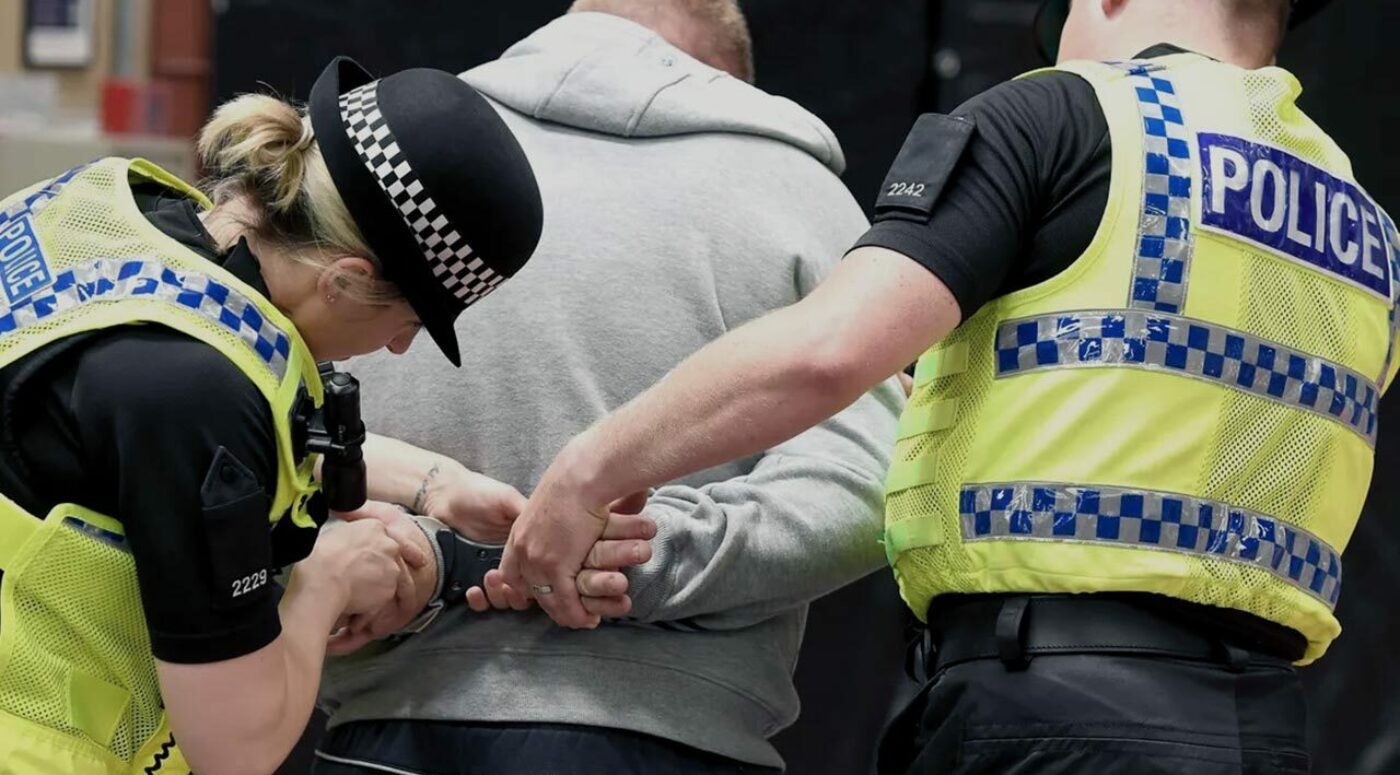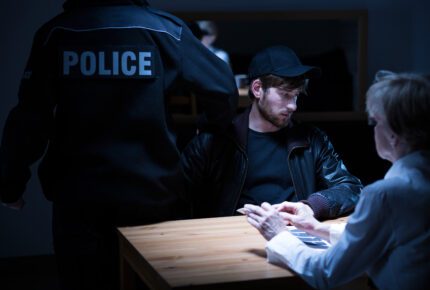

You have been arrested and are now waiting to hear what will happen next. You are worried about how long the police investigation will take and how it will affect your life. You are not alone – many people find themselves in this situation every year. In this article, we will explain how long a police investigation usually takes, how the CPS process works, and why investigations sometimes take longer than expected. We hope that this information will help you understand the process better and make informed decisions about your case.
What are the 3 phases of investigation?
Any police investigation process is complex and the exact format it takes depends on the nature of the crime being investigated and what information the police have at the time. Generally speaking, however, there are three broad phases to a police investigation: initial investigation, suspect evaluation, and charging. Here’s what is involved in each stage:
- Initial investigation: When a crime is reported, the police will begin by carrying out an initial investigation. This involves attending the scene of the crime, gathering evidence, and speaking to witnesses. The aim of this phase is to gather enough information to decide whether or not there is a case to answer. In some cases, the police may arrest a suspect at this stage.
- Suspect evaluation: Once the police have gathered enough evidence, they will then evaluate the suspect (or suspects). This involves looking at all the evidence and deciding whether there is a case to answer. If there is, the police will then prepare a file for the CPS.
- Charging: The final stage of the investigation is when the police charge the suspect with a crime. This is usually done after the CPS has looked at the case and decided that there is enough evidence to take it to court. If the suspect pleads guilty, then the case will go straight to sentencing. If the suspect pleads not guilty, then the case will go to trial.
Why do police investigations take so long?
There are a number of reasons why police investigations can take a long time. One of the main reasons is that the police have to gather enough evidence to be able to charge a suspect with a crime. This can sometimes take months, or even years, depending on the complexity of the case and how readily people come forward with information.
Another reason is that the CPS may ask for further investigation to be carried out before making a decision on whether or not to charge a suspect. This can also add months, or even years, to the investigation process.
How do I know if I’m being investigated by the police?
The police do not have to notify you that you are under investigation, but at some point, you are likely to be contacted. This is because as part of the investigation, the police will need to ask you questions and get your side of the story. Until that time, however, it is unlikely that you will know that the police are investigating you. Likewise, it is highly unlikely the police will share details of any evidence they hold against you in respect of that investigation.
If you are worried that you may be under investigation by the police, the best thing to do is to speak to a solicitor. They will be able to advise you on your rights and how to proceed. If the police do contact you, it is important to remember that you have the right to remain silent and the right not to answer any questions. Remember, you should always speak to a solicitor before answering any questions because you need to avoid any statements that might be self-incriminating.
What are my rights if I am under police investigation?
It is imperative that you know your rights in the event that you are arrested. As professional as the vast majority of police officers are, there is a risk that you could be pressured into answering questions when you don’t have to or doing something else that might lead to negative consequences down the line.
If you are under police investigation, you have the right to:
- Remain silent and not answer any questions
- Speak to a solicitor and have legal representation throughout the process
- Get medical assistance if you are unwell or injured
- Contact someone to tell them where you are
- Have an interpreter if you do not speak English, or do not speak enough English to fully understand what is happening
Is there a time limit for being under investigation in the UK?
There is no time limit for how long the police can investigate a crime. This means that you could be under investigation for months, or even years, without knowing it. The only exception to this is if the police have arrested you in connection with a crime. In that case, they must either charge you or release you within 24 hours. Note that if they release you, the police are still able to bring you back into the station for further questioning, and they may re-arrest you.
How long after a crime can you be charged?
The amount of time the police have to charge you for a certain crime depends on the crime itself. The Magistrates Courts Act 1980 states that any summary crime (i.e. any crime that is tried solely in the Magistrates’ courts) has a time bar of six months. In other words, the police have to charge you within six months of the crime happening, or else there is no possibility of prosecution.
For more serious indictable crimes like murder or rape, which are tried in the Crown Court by default, there is no time limit for how long the police have to charge you. That means, for example, that if someone committed rape decades ago, they can still be charged and tried today.
In some cases, people have been charged decades after the event took place.
How much evidence is needed to charge in the UK?
In any criminal case, the police need to have ‘reasonable grounds’ to suspect a person is guilty of a crime, and when they present their case to the CPS for charging, they must have sufficient evidence to provide a realistic prospect of conviction. This means that the police do not need to have concrete proof that a person committed a crime in order to charge them. Instead, they just need to have enough evidence indicating that it is more likely than not that the person committed the crime.
If there is enough evidence to support a conviction against each suspect for each charge in a criminal case, then a decision to move ahead with the charges is made. Depending on the offense(s) committed and how severe they are, this decision is made by either the police or by the CPS.
Can police charge you without evidence?
In theory, the police can charge you without evidence. However, in practice, they will only do this if they are confident that they can get a conviction in court. Without evidence, this is extremely difficult – if not impossible – so cases without evidence rarely proceed. If the police do not have enough evidence to realistically secure a conviction, then they should not charge you.
How long does it take for police to examine a phone?
The amount of time it takes for police to examine a phone will depend on how complex the phone is, and how much data needs to be analysed. Simple phones can be examined relatively quickly, while more complex phones – like smartphones – can take weeks or even months to examine fully, especially if the phone owner has taken additional security measures to protect their data.
What can the police do with text messages about drugs?
The mere fact that a text message references drugs is not enough to get you arrested, but the police may be able to use text messages as evidence in a case against you if you are charged with a drug crime, and they may be able to use it as part of their investigations into other people.
Can police press charges without the victim’s consent in the UK?
In short, yes. It is in the public interest that the police should be able to proceed with charges even if the victim does not consent. The only reason why the police will not proceed with a charge once a victim has withdrawn their support of the case is that it risks them not testifying in court, which could prejudice the prosecution. If a crime is serious enough, the police will proceed with a prosecution regardless.
How long does the CPS take to reach a decision in the UK?
How long it takes the CPS to make a decision depends on the complexity of the case and the available evidence, but generally speaking, the CPS takes about 6 weeks to make a decision. In some cases, it may be much faster.
Where to get more help with police investigations?
If you need help with an ongoing or anticipated police investigation, get in touch with the experts at Stuart Miller Solicitors today. Our friendly team is here to advise you on your rights, and they might even be able to get the case dropped before it reaches court.
OUR COMMITMENTS TO YOU:
-
Responsive
A legal expert will consult you within 24 hours of making an enquiry.
-
Empathetic
We will always treat you with trust, understanding and respect.
-
Specialised
Your case will be handled by an expert who specialises in your type of offence.
-
Proactive
We will take early action to end proceedings as soon as it is practically and legally possible to do so.
-
Engaged
You will be kept updated on your case at all times. We will provide a named contact available to answer your questions.
-
Caring
We understand this is a difficult and stressful time for you and your family. Our team will support you every step of the way.
-
Tenacious
We will never give up on your case. We fight tirelessly to get you the best possible outcome.

